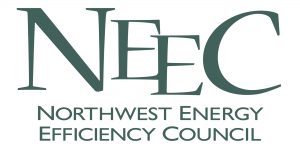Washington: Legislators received grim news from the state economist that predicted revenues to the state were being forecast downward, leaving lawmakers to scramble looking for additional spending cuts in the upcoming biennial budget. Energy legislation has largely taken a back seat as legislators look for budget solutions that would be acceptable to both House and Senate. Speculation has continued about whether the state will have a capital budget allocation this session (which has been the source of investment in public school energy efficiency projects in the past year). More will be known in the coming weeks as the budget deal begins to take shape. Legislation to create a “Clean Energy Partnership” which would assume a leadership role in a number of key programmatic and grant funding areas was folded into another bill that seeks to create a more broadly mandated statewide effort called Innovate Washington. A clean energy partnership would, in this legislation, become a program of Innovate Washington. (see ESB 5764) Since the bill has an appropriation with it, it must go through Ways and Means Committee and time is drawing very near for bill cutoff. (Legislatures impose deadlines for bills to move through their process or they die.)
Oregon: The NEEC priority legislation continues to make progress in the Legislature. While a number of bills have been introduced –as they are every year – to eviscerate the Energy Trust of Oregon, none of them appear to have gained any legislative traction and NEEC does not expect even a hearing on these bills. Our governmental affairs team in Salem is keeping a close watch on these bills and is poised to act should any of the show life. Proactively, our bill to establish energy performance disclosure requirements (residential and commercial) had a very positive hearing last week in Olympia. NEEC member companies provide expert testimony which was very convincing for committee members. Given the 30-30 tie in the Oregon House, this year’s rules require at least 2 supporting legislators from each party to move a bill forward. We are working hard to secure that support to keep this bill moving. NEEC also remains hopeful that intense behind the scenes negotiations will produce legislation that will extend the state’s BETC for energy efficiency. This is a very high priority item for NEEC and we are cautiously optimistic that the Legislature will preserve this important tax credit in the state. Similarly, conversations continue with key stakeholders on the contour of legislation that would create an investment pool for energy efficiency projects in Oregon public schools. If successful, this effort would also create the foundation for a broader innovative financing scheme for energy efficiency in the state. The Oregon legislative session will extend throughout the spring, so we may not see final action on these items for a number of weeks.
